The Lab aims to improve current technologists’ and policymakers’ understanding of tech policy issues, and to prepare the next generation of technologists conversant in policy and policymakers conversant in technology. We build tech policy capacity and fluency through a variety of initiatives such as our Distinguished Lecture series, Robotics and Law Primer Videos, and Tech Policy Instructional Case Studies, among others.
Videos
Distinguished Lectures
Our Distinguished Lecture Series brings to Seattle individuals the public might not otherwise hear from and shares their work with the community.
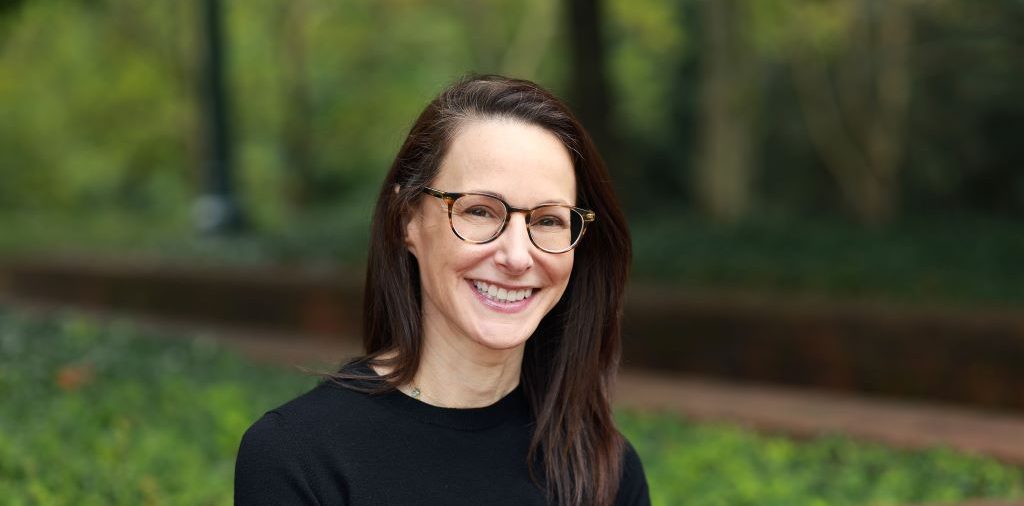
Distinguished Lecture with Danielle Citron | The Fight for Privacy: Protecting Dignity, Identity, and Love in the Digital Age
Danielle Citron is the Jefferson Scholars Foundation Schenck Distinguished Professor in Law and Caddell and Chapman Professor of Law at the University of Virginia, where she writes and teaches about privacy, free expression and civil rights. Her scholarship and advocacy have been recognized nationally and internationally.
The Fight for Privacy: Protecting Dignity, Identity, and Love in the Digital Age Privacy is disappearing. From our sex lives to our workout routines, the details of our lives once relegated to pen and paper have joined the slipstream of new technology. When intimate privacy becomes data, corporations know exactly when to flash that ad for a new drug or pregnancy test. Social and political forces know how to manipulate what you think and who you trust, leveraging sensitive secrets and deepfake videos to ruin or silence opponents. And as new technologies invite new violations, people have power over one another like never before, from revenge porn to blackmail, attaching life-altering risks to growing up, dating online, or falling in love. As part of the Tech Policy Lab’s Distinguished Lecture series, author Danielle Citron will visit the University of Washington to discuss her new book, The Fight for Privacy: Protecting Dignity, Identity, and Love in the Digital Age. A masterful new look at privacy in the twenty-first century, The Fight for Privacy takes the focus off Silicon Valley moguls to investigate the price we pay as technology migrates deeper into every aspect of our lives. Danielle Citron is the Jefferson Scholars Foundation Schenck Distinguished Professor in Law and Caddell and Chapman Professor of Law at the University of Virginia, where she writes and teaches about privacy, free expression and civil rights. Her scholarship and advocacy have been recognized nationally and internationally. For the past decade, Citron has worked with lawmakers, law enforcement and tech companies to combat online abuse and to protect intimate privacy. Her first book, Hate Crimes in Cyberspace (Harvard University Press, 2014), was widely praised in published reviews, discussed in blog posts, and named one of the 20 Best Moments for Women in 2014 by the editors of Cosmopolitan magazine. In 2019, Citron was named MacArthur Fellow based on her work on cyberstalking and intimate privacy. Citron is the inaugural director of University of Virginia’s LawTech Center and is an affiliate scholar at the Stanford Center on Internet and Society, Yale Information Society Project, and NYU’s Policing Project.

Distinguished Lecture with Langdon Winner | Technology Innovation and the Malaise of Democracy
Langdon Winner is a political theorist who focuses upon social and political issues that surround modern technological change.
2021 Tech Policy Lab Distinguished Lecture "Technological Innovation and the Malaise of Democracy" Decades of enthusiasm for the magic of digital devices has generated a society largely passive as regards democratic participation in the shaping of new technologies that will affect how we live. We’ve learned to accept and celebrate whatever flows from the Silicon Valley pipeline, even when the results undermine personal privacy and concentrate wealth and power in the hands of a scant few. Initiatives in “technology assessment” from earlier times encouraged popular participation and careful reflection upon choices in this realm. Can this approach be revived? Langdon Winner is a political theorist who focuses upon social and political issues that surround modern technological change. Among his writings are Autonomous Technology, a study of the idea of "technology-out-of-control" in modern social thought and The Whale and the Reactor: A Search for Limits in an Age of High Technology. Professor Winner is currently the Thomas Phelan Chair of Humanities and Social Sciences at Rensselaer Polytechnic Institute in upstate New York. In 2020 he was awarded The J.D. Bernal Prize for lifetime achievement in science and technology studies by the Society for Social Studies of Science. His works of satire include “The Masked Marauders” (a send up of 1960s rock super-session albums) and “Introducing the Automatic Professor Machine” (a comic vision of educational technology). Langdon now lives on Maquoit Bay in Maine.
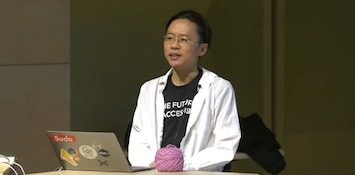
Taking Care: Code and Control in a Technological Future | Taeyoon Choi
Taeyoon Choi is an artist, organizer, teacher and cofounder of the School for Poetic Computation, an artist-run school in New York City with a motto of “More Poetry, Less Demo.”
Taeyoon Choi is an artist, organizer, teacher and cofounder of the School for Poetic Computation, an artist-run school in New York City with a motto of “More Poetry, Less Demo.”
In this Distinguished Lecture, Choi considers what care means for a technologically-oriented future. Choi will first share from his experiences of over seven years of teaching and co-organizing the School for Poetic Computation. In 2019, the School initiated satellite programs in Detroit, USA and Yamaguchi, Japan. Choi will discuss the lessons he learned working in and with different cultural and geographical contexts, including a proposal for distributed, peer-to-peer learning. In the second half of the lecture, Choi will lead the audience in a participatory activity based on the Distributed Web of Care, an art project and initiative to “code-to-care” and “code carefully”. This project imagines the future of the internet from a perspective of care, focusing on personhood in relation to accessibility, identity, and the environment, with the intention of creating a distributed future that is built with trust and care, where diverse communities are prioritized and supported.
More
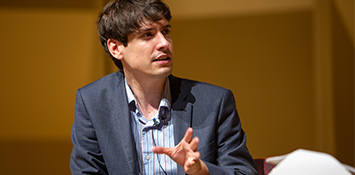
Hacking Elections: A Conversation with Matt Tait
On November 28th, 2018 cybersecurity expert and former British intelligence officer Matt Tait gave the Tech Policy Lab's Distinguished Lecture on foreign interference with the midterm elections.
On November 28th, 2018 the Tech Policy Lab organized a interview with cybersecurity expert and former British intelligence officer Matt Tait on foreign interference with the midterm elections. Tait helped detect Russian interference in the 2016 election and discussed a range of topics, including the meddling in the midterms, the status of the Russia investigation, and what can be done about foreign interference in a digital age.
Matt Tait is a senior fellow at the Robert S. Strauss Center for International Security and Law at the University of Texas at Austin where he teaches cyber-security to law and public policy students. Previously Tait worked in private industry as a consultant to US tech companies such as Microsoft and Amazon, and worked in Google’s Project Zero security team. Prior to that, Tait worked on cybersecurity issues at the UK’s GCHQ intelligence agency. Tait can be found on Twitter at @pwnallthethings.
Matt Tait was interviewed by Megan Finn, assistant professor at the University of Washington Information School.
More
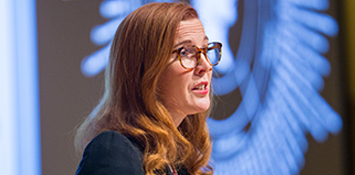
AI Now: Social and Political Questions for Artificial Intelligence | Kate Crawford
In March 2018, Kate Crawford gave the Tech Policy Lab’s Spring Distinguished Lecture on “AI Now: Social and Political Questions for Artificial Intelligence.”
On March 6th, Kate Crawford gave the Tech Policy Lab’s Spring Distinguished Lecture on “AI Now: Social and Political Questions for Artificial Intelligence.”
The impact of early AI systems is already being felt, bringing with it challenges and opportunities, and laying the foundation on which future advances in AI will be integrated into social and political domains. The potential wide-ranging impact makes it necessary to look carefully at the ways in which these technologies are being applied now, whom they’re benefiting, and how they’re structuring our social, economic, and interpersonal lives.
Kate Crawford is the co-founder (with Meredith Whittaker) of the AI Now Institute, a New York-based research center working across disciplines to understand the social and economic implications of artificial intelligence. She is a principal researcher at Microsoft Research New York City, a visiting professor at MIT’s Center for Civic Media, and a senior fellow at NYU’s Information Law Institute. Her research addresses the social implications of large scale data, machine learning and AI. Recent publications address the topics of data discrimination, social impacts of artificial intelligence, predictive analytics and due process, ethical review for data science, and algorithmic accountability.
More
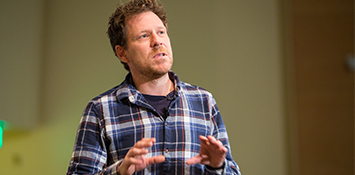
Poison Arrows and Other ‘Killer Apps’: A Hunter-Gatherer Perspective on Tech and our Future | James Suzman
In November 2017, James Suzman joined the Tech Policy Lab to give our fall Distinguished Lecture on “Poison Arrows and Other ‘Killer Apps’: A Hunter-Gatherer Perspective on Tech and our Future.”
In November 2017, James Suzman joined the Tech Policy Lab to give our fall Distinguished Lecture on “Poison Arrows and Other ‘Killer Apps’: A Hunter-Gatherer Perspective on Tech and our Future.” Dr. Suzman discussed what we might learn from a better understanding of hunter-gatherers about technology and sustainability.
The success of a civilization can be measured by its longevity. In that light, Southern Africa’s hunting and gathering San (“Bushmen”) are the most enduring (and successful) civilization in the history of modern Homo sapiens. What tools do the San use and how has their tool use contributed to such longevity? What of modern society? Despite technological advancements that have enabled levels of productivity unimaginable a hundred years ago, the modern world faces broad sustainability challenges. How might a better understanding of sustainable hunter-gatherer societies like the San help us respond to the social and economic impacts of modern technology, including challenges from increasing automation and computerization? How might such understanding help us to meet broader sustainability challenges?
With a head full of Laurens van der Post and half an anthropology degree from St Andrews University under his belt, James Suzman hitched a ride into Botswana’s eastern Kalahari in June 1991. He has been living and working with Kalahari peoples ever since. Dr. Suzman holds a Ph.D. in social anthropology from Edinburgh University which he was awarded in 1996. Since then he has lived and worked with every major Bushman group in southern Africa, from the war ravaged Vasakele !Kung of southern Angola during the final phases of that civil war, to the highly marginalized Hai//om of Namibia’s Etosha National Park. Dr. Suzman is the Author of Affluence without Abundance: The Disappearing World of the Bushmen, published by Bloomsbury in 2017.
More
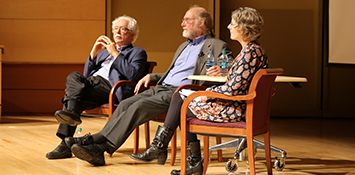
My Politics as a Technologist | Terry Winograd and Alan Borning
On November 30, 2016 the Tech Policy Lab organized a discussion at the intersection of personal politics and technical expertise with Terry Winograd and Alan Borning.
On November 30, 2016 the Tech Policy Lab organized a discussion at the intersection of personal politics and technical expertise with Terry Winograd and Alan Borning. Professor Terry Winograd is a leader in human-computer interaction and the design of technologies for development. Professor Winograd advised the creators of Google and was a founding member of Computer Professionals for Social Responsibility. Professor Emeritus Alan Borning is an expert in programming languages and human computer interaction. Professor Borning pioneered information systems for civic engagement, among them OneBusAway, a set of digital tools that provide real-time transit information, UrbanSim (think SimCity for real) and the Living Voters Guide, an experiment in social media for an informed electorate.
More
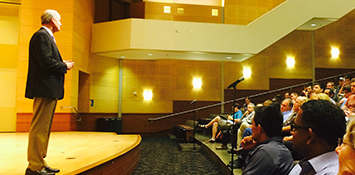
Deterrence in the 21st Century: From Nuclear, To Space, To Cyberspace | General Kevin Chilton
In April 2016, General Kevin Chilton gave the Tech Policy Lab's Spring Distinguished Lecture on Deterrence in the 21st Century: From Nuclear, To Space, To Cyberspace.
General Chilton served 34 1/2 years in the US Air Force in various flying and staff positions and retired in 2011 as the Commander of U.S. Strategic Command, responsible for the plans and operations of all U.S. forces conducting strategic deterrence and DoD space and cyberspace operations. Prior to his work in Strategic Command, General Chilton commanded Air Force Space Command. During part of his Air Force career he served with NASA and was a Command Astronaut Pilot and flew 3 Space Shuttle missions. General Chilton has a BS in engineering from the USAF Academy, a Masters in Mechanical Engineering from Columbia University and an honorary Doctor of Laws degree from Creighton University.
More
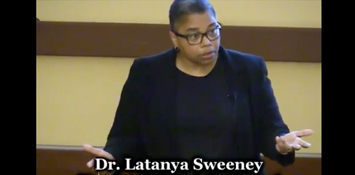
How Technology Impacts Humans | Latanya Sweeney
In December 2016, the Lab's Fall Distinguished Lecture was given by renowned technologist and former Chief Technologist for the Federal Trade Commission, Professor Latanya Sweeney.
Technology designers are new policy makers. No one elected them and most people do not know their names, but the arbitrary decisions they make when producing the latest gadgets and online innovations dictate the code by which we conduct our daily lives and govern our country. As technology progresses, every democratic value and every law comes up for grabs and will likely be redefined by what technology enables or not. Privacy and security were just the first wave. In this talk, let’s see how it all fits together or falls apart.
As a professor at Harvard University, Latanya Sweeney creates and uses technology to assess and solve societal, political and governance problems, and teaches others how to do the same. One focus area is the scientific study of technology’s impact on humankind, and she is the Editor-in-Chief of the newly formed journal Technology Science. She was formerly the Chief Technology Officer at the Federal Trade Commission, an elected fellow of the American College of Medical Informatics, with almost 100 academic publications, 3 patents, explicit citations in 2 government regulations, and founded 3 company spin-offs. She has received numerous professional and academic awards, and testified before federal and international government bodies. Professor Sweeney earned her PhD in computer science from the Massachusetts Institute of Technology, being the first black woman to do so. Her undergraduate degree in computer science was completed at Harvard University. latanyasweeney.org.
More
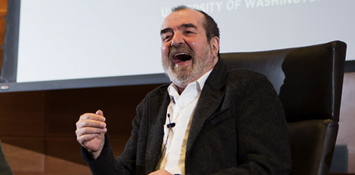
WeRobot 2015 Keynote: An Evening with Tony Dyson
Tony Dyson, noted roboticist and special effects model-maker, and the builder of R2D2, discusses the future of robotics with Professor Ryan Calo of the University of Washington School of Law.
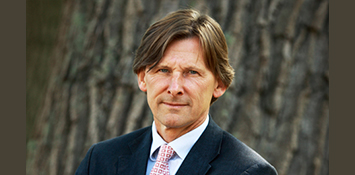
Responsible Innovation in the Age of Robots and Smart Machines | Jeroen van den Hoven
In December 2014, Jeroen van den Hoven gave the Tech Policy Lab's Distinguished Lecture on Responsible Innovation in the Age of Robots and Smart Machines.
Many of the things we do to each other in the 21st century –both good and bad – we do by means of smart technology. Drones, robots, cars, and computers are a case in point. Military drones can help protect vulnerable, displaced civilians; at the same time, drones that do so without clear accountability give rise to serious moral questions when unintended deaths and harms occur. More generally, the social benefits of our smart machines are manifold; the potential drawbacks and moral quandaries extremely challenging. In this talk, I take up the question of responsible innovation drawing on the European Union experience and reconsidering the relations between ethics and design. I shall introduce ‘Value Sensitive Design’, one the most promising approaches, and provide illustrations from robotics, AI and drone technology to show how moral values can be used as requirements in technical design. By doing so we may overcome problems of moral overload and conflicting values by design.
Jeroen van den Hoven is full professor of Ethics and Technology at Delft University of Technology, he is editor in chief of Ethics and Information Technology. He was the first scientific director of 3TU.Ethics (2007-2013). He won the World Technology Award for Ethics in 2009 and the IFIP prize for ICT and Society also in 2009 for his work in Ethics and ICT.
More
Robotics and Law Primer Videos
Designed to cover the basic topics for a robotics policy class, the Primer Videos cover tech topics such as: bots, algorithms, machine learning, and robots; as well as administrative law and product liability.

What is a Bot?
Bots are automated software, designed by human programmers to do tasks on the web. Bots have been around since the beinning of the internet. As a recent New York Times article says, bots are getting smarter and easier to create. As bots become more convincing, users and researchers need to be careful what we are […]
Bots are automated software, designed by human programmers to do tasks on the web. Bots have been around since the beinning of the internet. As a recent New York Times article says, bots are getting smarter and easier to create. As bots become more convincing, users and researchers need to be careful what we are being convinced of.
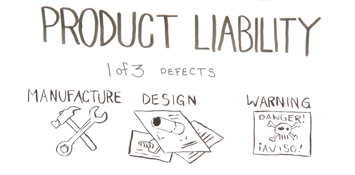
What is Product Liability?
Product liability is the area of law in which consumers can bring claims gainst manufacturers and sellers for products that injure people. To sue for product liability, you only need to thos 1 of 3 things to hold the manufacturer liable.
Product liability is the area of law in which consumers can bring claims gainst manufacturers and sellers for products that injure people. To sue for product liability, you only need to thos 1 of 3 things to hold the manufacturer liable.
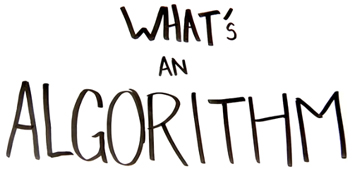
What is an Algorithm?
An algorithm is set of step by step instructions that is used to do something.

What is Machine Learning?
Machine learning is a process by which algortithms can 'learn' to interpret data by observing patters in existing data, and applying those insights to data it has never seen before.
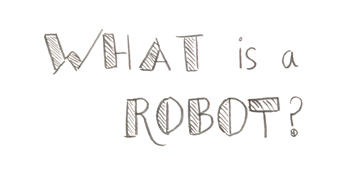
What is a Robot?
In our research, we found 3 broad approaches that scholars use to define robots. These are (1) as artificial humans, (2) programmable machines, and (3) machines that can sense, think, and act on the world. None of these approaches offers a definition that works for all of the ways we already use the word. But […]
In our research, we found 3 broad approaches that scholars use to define robots. These are (1) as artificial humans, (2) programmable machines, and (3) machines that can sense, think, and act on the world. None of these approaches offers a definition that works for all of the ways we already use the word. But they're a start.
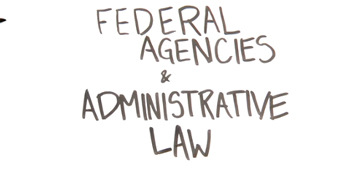
What is Administrative Law?
Federal Agencies are semi-independent, executive bodies that are created through statute for subject-matter specific purposes. Agencies are formed by an act of Congress. Congress writes a kind of law called an “Organic Statute” that lays out the purpose and the structure of the agency. And then the agency is in charge of implementing the purpose as laid out in the statute.
Case Studies
Instructional Case Studies
The Lab’s Instructional Case Studies are designed to enhance tech policy capacity and fluency in a wide variety of settings from preparing policymakers to educating undergraduate students. The case studies bridge engineering, technical, policy, and ethics and prompt participants to consider the socio-technical aspects of a setting and to engage in a design activity that involves both technical and policy design. View Case Studies »

Drones Okay Playground: Fun With Personal Drones
This case study introduces drones as a rapidly evolving socio-technical phenomenon, and positions students to develop skills for direct and indirect stakeholder analysis, and to explore how policy recommendations might be used to develop legal regulations and technical requirements for drones.
View PDF »

NeighborSpin: Sharing Laundry Facilities
This case study introduces some of the political, social and technical aspects of the "Sharing Economy," and positions learners to develop skills for writing value scenarios while exploring the implications and considerations of policy design and technology implication, explore the viewpoints of entrepreneurs and policymakers related to innovation, business modules, and community-based regulations, and explore how policy considerations and human factors can influence technology design and business models.
View PDF »
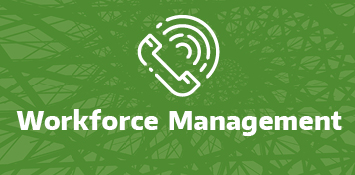
Workforce Management: Scheduling Call-Center Workers
This case study positions students to consider the regulation of Workforce Management Systems. Students explore how forecasting and scheduling algorithms can lead to unstable and unpredictable work schedules. Such schedules, while perhaps economically advantageous to business, negatively impact the wellbeing of workers and their families with major implications for the public interest.
View PDF »

Internet of Things: Gaslighting and the Smart Home
This case study positions students to consider the features of a "Smart Home" and to explore a worst-case scenario, namely, that a smart home might be used in a gaslighting attack. Learners first consider how technologies in domestic settings can have ripple effects throughout society and then design policy and technical responses. Please Note: This case study contains potentially distressing content related to domestic abuse.
View PDF »